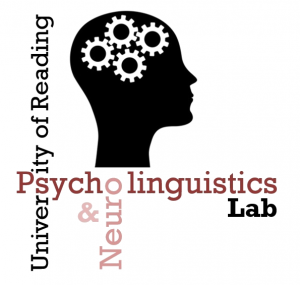Similarity-based interference in native and non-native sentence comprehension (2019-2022)
Ian Cunnings
Leverhulme Trust Research Project Grant
This 3-year project, funded by the Leverhulme Trust, examines native and non-native sentence comprehension. The factors that influence successful sentence comprehension in a second, non-native language have been widely debated. These include factors such as a non-native speaker’s proficiency in the non-native language, their understanding of non-native vocabulary, and their first language background, amongst many others. Additionally, certain types of sentences may pose particularly difficulty for non-native readers to comprehend successfully.
This project examines how the phenomenon of similarity-based interference influences successful sentence comprehension in native and non-native language users. Recent research has highlighted how similarity between the constituents of a sentence can make comprehension easier or more difficult. For example, sentences like ‘It was the beer that the man near the wine very happily drank’ may cause difficulty, due to similarity between ‘the beer’ and ‘the wine’, which can both act as potential arguments of the verb ‘drank’ (i.e. both are ‘drinkable’). Other sentences that do not exhibit such similarity between constituents, such as ‘It was the beer that the man near the table very happily drank’ (where only ‘the beer’ is drinkable), are comparatively easier to understand.
This difficulty in comprehension has been linked to the role of working memory during real-time comprehension, and how information is accessed from memory during sentence processing. This project aims to investigate this phenomenon during real-time language processing, and examines how similarity-based interference influences sentence comprehension in native and non-native speakers. It will additionally examine how individual differences in non-native speakers’ proficiency and vocabulary knowledge influence sentence processing. The project will inform our understanding of the factors that influence successful non-native language acquisition and processing in different populations of non-native language learners, and provide new insight into the role of working memory during language comprehension.
Related Publications
Fujita, H. & Cunnings, I. (2024). Subject-verb dependency formation and semantic interference in native and non-native language comprehension. Applied Psycholinguistics, 45, 81-109.
Cunnings, I. & Fujita, H. (2023). Similarity-based interference and relative clauses in second language processing. Second Language Research, 39, 539-563.
Fujita, H. & Cunnings, I. (2022). Interference and filler-gap dependency formation in native and non-native language comprehension. Journal of Experimental Psychology: Learning, Memory and Cognition, 48, 702-716.
Cunnings, I. & Fujita, A. (2021). Quantifying individual differences in native and non-native sentence processing. Applied Psycholinguistics, 42, 579-599.

